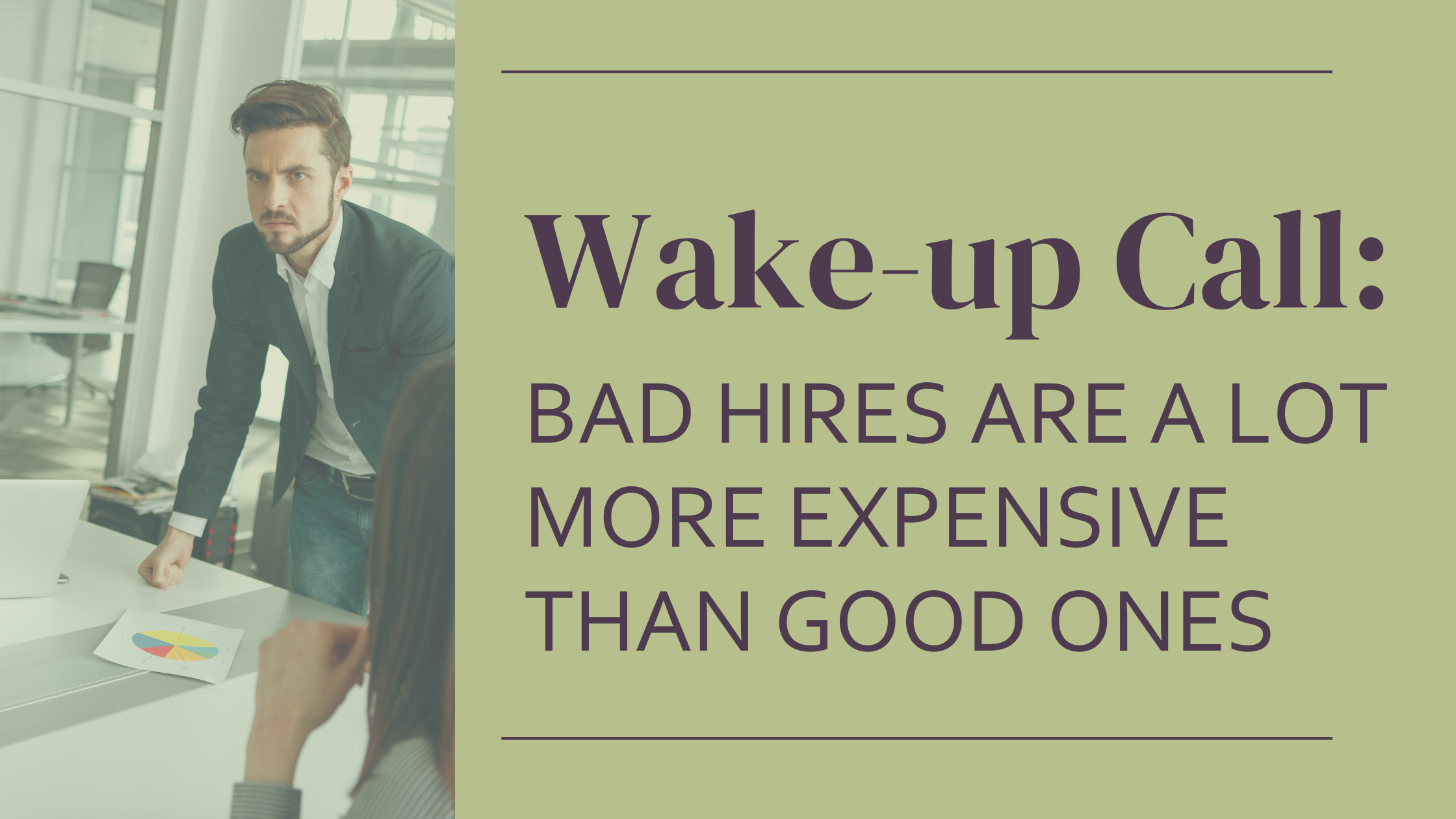Wake-Up Call: Bad Hires Are a Lot More Expensive Than Good Ones

Hiring is expensive, but hiring the wrong person costs a whole lot more.
How much will bad hires cost? About 30% of the new hire’s salary, according to the folks at CareerBuilder.
What’s worse, 74% of managers admit that they’ve hired the wrong person for the job at some point in their leadership career.
Snowball Effect of Bad Hires
But really, the cost of a bad hire doesn’t stop at the hiring and turnover dollars. It has a snowball effect on the workplace.
Think of the potential issues when a bad hire starts poisoning the well: There will likely be a negative impact on employee morale and customer satisfaction, quality of work and company reputation. There are costs related to all of those issues.
So even if you’re only planning to add one person to the mix, you want to tighten your hiring processes to ensure expensive missteps don’t happen. Here’s help.
Where Things Go Wrong
Some Monday morning quarterbacking from your peers who’ve already made hiring mistakes can help you avoid a similar fate.
Here’s a list of reasons some managers felt the wrong person got the job:
- The candidate didn’t have all the needed skills, but we thought they’d learn quickly
- The candidate lied about their qualifications
- We took a chance on a nice person
- We felt pressured to fill the role quickly
- We had a hard time finding qualified candidates
- We focused on skills rather than attitude
- We ignored some of the warning signs, and
- We didn’t do a complete background check.
Bad hires seem to boil down to three issues. Here they are and how to avoid each:
1. Failure to Do Due Diligence
Failing to check that everything is true on resumes and in interviews, skipping background checks and rushing through interviews: They’re shortcuts that can saddle you with a bum hire.
Not only background checks but reference checks can help spot any inconsistencies or downright lies.
Key: Be diligent. Look for answers on anything that seems suspicious or too good to be true. Work with HR to check references. Get permission from the job candidate with a stand-alone release form for a background check.
2. Making Too Many Assumptions
You know the old expression about when you assume . . .
Assuming someone can pick up skills on the job can fail. Same goes for the other side of the coin: If they’re skills-proficient, and you assume their bad attitude will diminish, it quickly comes back to bite you.
Key: Look at both hard and soft skills – as well your corporate culture and how well the potential employee fits it – when evaluating. Sometimes hiring for experience works. Sometimes hiring for potential works better. You want to consider what works best for each role.
3. Lacking Resources
Whether it’s the time or the tools, hiring managers who feel ill-equipped to make the right call often make the wrong one. Hiring managers often feel they don’t have the time, training or technical tools to make good decisions when it comes to hiring. They often feel rushed to fill a role because their staff doesn’t have the bandwidth to take on the work that remains from the person who left.
Key: It’s so important for hiring managers to work closely with HR in the hiring process. When you can, spend a few more days conducting additional interviews. And remember: The cost of a background check pales in comparison to how much you stand to lose if the wrong person gets the job.
Article originally published by HRMorning.com on Jun5, 2025. Written by Michele McGovern.